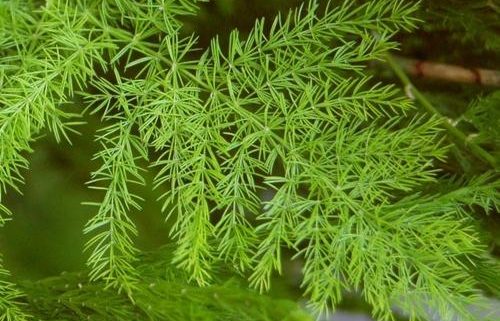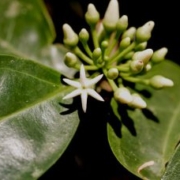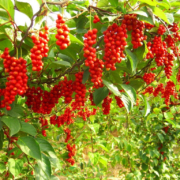Shatavari
(Asparagus racemosus)
Shatavari is an herb from the Ayurvedic tradition. In Hindi, its name means “one who possesses a hundred husbands,” a hint that this herb has been used traditionally as a fertility tonic. Like all herbs, it has dozens of uses. Read on to learn more about some of its applications.
Energetics: sweet, bitter, cooling, moistening
Actions: adaptogen, immunomodulator, yin tonic, antitussive, anti-oxidant, anti-bacterial, anti-spasmodic, anti-inflammatory, aphrodisiac, galactogogue, diuretic, haemostatic
Chemistry: contains steroidal saponins, isoflavones, polysaccharides and mucilage.
Uses: Traditional use in the Ayurvedic traditions lists dozens of conditions where Shatavari may be helpful. These include rheumatism, cough, diarrhea, dysentery, gastric irritation, infertility, threat of miscarriage, menopausal symptoms, bleeding disorders, chronic fever and any other signs of internal heat or irritation. It is considered to be a nutritive and rejuvenative tonic, especially to pitta constitutions.
In recent studies, shatavari has been shown to increase both the weight of mammary lobulo-aveolar tissue and the total volume of milk produced. It was found to inhibit oxytocin-induced contractions in vivo. It has shown significant antitussive activity in mice, and in vitro, has proven effective against E. coli, Shigella, Salmonella and Staph. All of this supports the traditional use in treating cough, dysentery, diarrhea, and as a support during pregnancy & breast-feeding.
Probably the most common use of shatavari is among menopausal women suffering from hot flashes, insomnia, night sweats and vaginal dryness. Again, traditional use of shatavari for menopausal health and as an overall female reproductive tonic has been validated. One study found that over 80% of participants experienced better sleep and reduced hot flashes from using shatavari (Shrestha et. al, 2003).
Shatavari is thought to strengthen the reproductive organs in both men and women by nourishing the ojas, or the highly refined and nourishing substance that resides in the reproductive tissues of the body. The steroidal saponins in shatavari support the production of reproductive hormones.
As a nutritive tonic, shatavari enriches the body’s fluids, plasma and white blood cells, strengthening the immune system and providing lubrication and nutrition for the entire body. This is what makes it a yin tonic in Chinese Medicine.
Its cooling and demulcent properties soothe all forms of heat and irritation in the urinary, respiratory and GI tracts. Shatavari may be useful for any form of excess heat in the body such as chronic fever, ulcers, and bleeding disorders such as menorrhagia. Bleeding is actually considered to be a heat condition. The cooling quality of shatavari causes blood vessels to constrict which is why it’s used as a haemostatic.
Indications: infertility, vaginal dryness, low libido, dry, achy joints, anemia, low immunity, inflammation of the GI tract (IBS, gastritis), GI irritation to alcohol consumption, gastric ulcers, menorrhagia, chronic fever, hot flashes, night sweats, insomnia due to yin deficiency, food poisoning, dysentery, diarrhea due to heat or infection, dry, ticklish coughs, threat of miscarriage, insufficient milk flow, postpartum weakness, irritation of the urinary tract (cystitis, urethritis) and any other sign by heat or dryness (even dry skin)–especially when accompanied by chronic stress or adrenal fatigue.
Contraindications: because of its cooling and moistening properties, avoid in cases of sluggish digestion with watery diarrhea, or excessive mucus production. This can be balanced in a formula with warming & drying herbs.
Dosage: 40-80 drops tincture (1:5), 2 tsp/ 20 g dried powdered root per day, either mixed into food or decodted for 10-15 minutes in 8 oz of water.
**This information is for educational purposes only and is not intended to diagnose or treat any disease**











I suffered the illness called Parkinson Disease. I went to so many hospital’s and herbalist, no one was able to help me. The illness nearly took my life, until a friend of mine introduced me to a herbal centre called BEST HEALTH HERBAL CENTRE , I never knew the owner of the herbal centre was a genius until i contacted him. I purchased two bottle of PD herbal formula and used as instructed for six weeks. My symptoms totally declined and PD reversed completely after the six weeks usage. I just turned sixty years last week, and am doing very well.